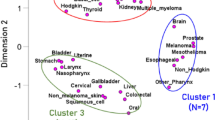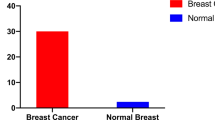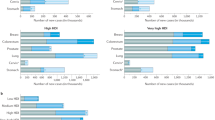Abstract
To explain the observed fact that, in England and Wales for ages above fifteen years, the decrease in deaths from phthisis has been exactly compensated by the increase in deaths from cancer1, I have postulated the existence of a Bacillus tuberculosis ‘phage’ which is carcinogenic2. The idea has been followed up in more detail, and several additional relations of cancer and tuberculosis, all of which support the phage concept, have been disclosed.
This is a preview of subscription content, access via your institution
Access options
Subscribe to this journal
Receive 51 print issues and online access
$199.00 per year
only $3.90 per issue
Buy this article
- Purchase on Springer Link
- Instant access to full article PDF
Prices may be subject to local taxes which are calculated during checkout
Similar content being viewed by others
References
Cherry, T., Med. J. Australia, Oct. 11 (1924); June 6 (1925); Aug. 12 (1933).
Cruickshank, D. B., "Tuberculosis, Cancer and Zinc. An Hypothesis" (Medical Publications, London, 1936).
Author information
Authors and Affiliations
Rights and permissions
About this article
Cite this article
CRUICKSHANK, D. Human Cancer and the Theory of ‘Cancer Phage’. Nature 143, 114–115 (1939). https://doi.org/10.1038/143114a0
Published:
Issue Date:
DOI: https://doi.org/10.1038/143114a0
Comments
By submitting a comment you agree to abide by our Terms and Community Guidelines. If you find something abusive or that does not comply with our terms or guidelines please flag it as inappropriate.



